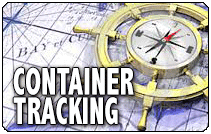The Top 10 List
1. Get three written in-home estimates.
Be wary of phone or internet estimates. Show the mover everything that will be moved, including items in attics, basements, garages, storage areas, sheds, etc. Typically two of the estimates will be very close together in price, weight, and service. Select one of those two estimates. The other bid will be very high or low. Avoid that carrier.
2. Avoid down payments.
Be wary of carriers seeking down payments to hold dates or to reserve service.
3. Ask questions.
If you do not understand something, ask. The moving business is complex and has its own language. If you aren’t satisfied with the answers to your questions or if the carrier hesitates when you ask for clarification, talk to another carrier.
4. Plan an Off-Peak Season Move (when possible).
June to September is the high season. If you can avoid moving during those months, you will likely receive better service. If you must move during the high season, move mid-month, mid-week, and avoid the end of the month.
5. Be Reachable by Phone.
Make sure you are able to be reached by phone and/or email during the course your move. Communication is essential for a good move.
6. Take Valuables with You.
Valuables, such as cash, coins, jewelry, photographs, and important papers should be taken with you.
7. Segregate Personal Travel Items.
The items traveling with you, such as clothes and papers, should be put in one place you designate to the movers. This will avoid having these items loaded on the truck and having to find them later.
8. Arrange Your Finances.
Make the necessary currency exchange, transfer of funds and opening and/or closing of bank accounts. Compare rates ( click here )
9. Utilities.
Leave gas, water and electric on a couple of extra days after move day.
10. Try to Relax.
No matter how prepared you are things occasionally go wrong. Moving is one of the most stressful times in your life. Take a deep breath, be patient, and get a good night’s sleep before moving day.




